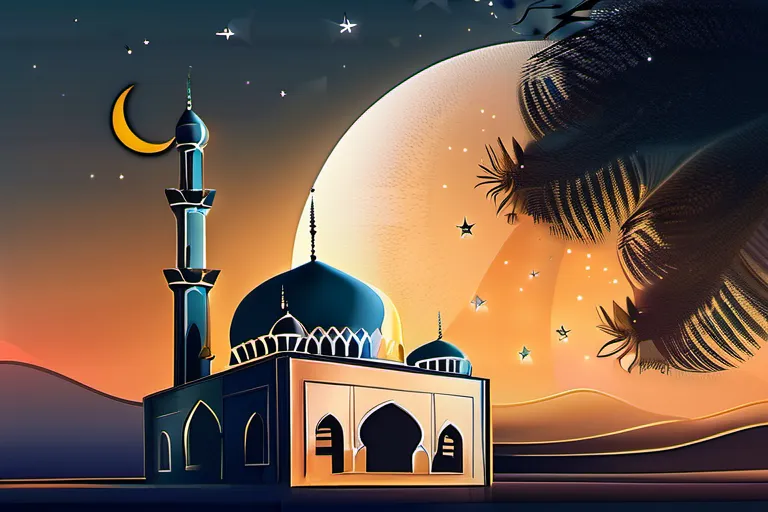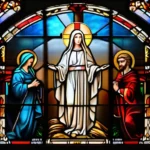Explore the fundamental teachings, practices, and principles of Islam in this detailed guide.
Islam is one of the world’s major religions, with over 1.8 billion followers worldwide. In this article, we delve into the core beliefs that form the foundation of Islamic teachings.
The Five Pillars of Islam
Imagine Islam as a towering mountain, and its core beliefs are the foundation stones that keep it standing firm against the winds of change. Among these foundational stones, the Five Pillars stand out as the bedrock upon which every Muslim’s faith is built. Let’s explore each one in detail.
Shahada, the first pillar, is like planting a seed. It’s the declaration of belief that “There is no god but Allah and Muhammad is the messenger of Allah.” This simple sentence carries immense weight, as it acknowledges the Oneness of God and the prophethood of Muhammad. How often do we pause to reflect on the profound meaning behind this declaration?
Salah, or prayer, can be likened to watering that seed with daily nourishment. Muslims are required to pray five times a day, facing the holy city of Mecca. These prayers are not just about worship; they’re also a way of aligning oneself with the divine and maintaining spiritual discipline. Can you imagine how these prayers, offered regularly, can shape one’s character and outlook?
Zakat is like fertilizing the soil. This obligatory charity helps Muslims purify their wealth by giving to those in need. It’s not just about financial contribution; it’s a way of ensuring that resources are distributed equitably. How does this practice make you think about your own relationship with money and how you use it?
Sawm, or fasting during Ramadan, can be seen as the process of pruning a tree. Muslims fast from dawn till dusk, abstaining from food, drink, and other worldly pleasures. This self-discipline is both physically and spiritually challenging, yet deeply rewarding. How do you think fasting can transform your own life?
Hajj, the pilgrimage to Mecca, is like a journey that every Muslim strives to undertake at least once in their lifetime. It’s an incredible experience where millions of people from all walks of life gather together, symbolizing unity and equality before God. What does this act signify for your understanding of faith and community?
Each of these pillars serves not just as a religious duty but also as a path to personal growth and spiritual development. Together, they form the framework upon which the entire structure of Islamic belief is built. By fulfilling these obligations, Muslims aim to live a life that pleases God and brings them closer to Him.
Understanding these pillars is crucial for anyone seeking to delve into the heart of Islam’s core beliefs. They offer a glimpse into the rich tapestry of practices and principles that guide millions of believers around the world in their quest for spiritual fulfillment and social responsibility.
The Quran: The Holy Book of Islam
The Quran: The Holy Book of Islam
Imagine a book that has been shaping the lives of billions for over 14 centuries, guiding them through their daily struggles and providing solace in times of despair. That is what The Quran is to Muslims. This sacred text serves as more than just a religious scripture; it is the very foundation upon which Islamic beliefs and practices are built.
So, how did this ancient book come into existence? According to Islamic tradition, the angel Gabriel appeared to the Prophet Muhammad one night in 610 CE, initiating what would become the revelation of the Quran over a period of approximately 23 years. This divine message was meant to clarify and reaffirm the monotheistic beliefs that were central to earlier prophets like Abraham, Moses, and Jesus.
The Quran is not just a collection of stories or commandments; it is a comprehensive guide to life, covering topics from social justice and ethical behavior to spiritual growth. Muslims believe in its purity and authenticity, believing that it was preserved through memorization by early followers before being written down after the death of the Prophet Muhammad.
Its significance extends far beyond religious rituals—it influences every aspect of a Muslim’s daily life, from personal conduct to community interactions. The verses are recited during prayers (Salah) and serve as a source of inspiration and comfort in moments of need. Understanding the Quran is essential for anyone wishing to delve deeper into Islam.
Each chapter, or sura, within the Quran addresses various themes such as faith, justice, and morality, often beginning with more profound revelations and ending with shorter, simpler verses. This structure reflects the belief that the early messages were intended for a time of greater spiritual challenge.
In conclusion, The Quran is not merely a book; it is a living entity that continues to guide Muslims through life’s complexities. Its teachings have been passed down through generations, shaping societies and cultures across the globe. By understanding its core messages and principles, one can gain a deeper appreciation for this holy text and its profound impact on the world of Islam.
Prophet Muhammad: The Founder of Islam
Imagine standing at the threshold of a world where one man’s journey became the blueprint for millions of lives. Prophet Muhammad, born in 570 CE in Mecca, was not just any ordinary individual; he was the founder of Islam, a religion that has transformed countless lives and continues to shape societies across the globe.
How did Muhammad become the central figure of this faith? What made him so significant that his teachings continue to inspire devotion and dedication among Muslims worldwide? His life was a series of revelations, a journey from a humble trader to a revered prophet. The question arises: what were the key moments in his life that transformed him into the leader of Islam?
One pivotal moment came when Muhammad received his first revelation through the angel Gabriel. It is said that this event marked the beginning of his mission to convey the message of Allah‘s oneness and righteousness. Imagine receiving a divine command, a responsibility so immense that it would change your life forever; how did Muhammad react? Did he embrace it with fear or with faith?
Throughout his prophetic mission, Muhammad faced numerous challenges and hardships. From persecution in Mecca to the eventual migration to Medina, each step was fraught with trials. How did these experiences shape him as a leader and a prophet? The metaphor of a seed growing into a mighty tree aptly captures how Muhammad’s teachings took root and flourished despite adversity.
His teachings emphasized justice, compassion, and unity. These principles are not just religious ideals but also ethical guidelines that Muslims follow in their daily lives. By exploring his life and teachings, we can better understand why the concept of Muhammad as the final prophet is so integral to Islam.
In conclusion, Muhammad’s life and message continue to resonate deeply within Islamic communities. His legacy serves as a reminder of the power of faith and the impact one person can have on shaping the destiny of countless others. As we delve deeper into his teachings and practices in subsequent sections, we will uncover the profound significance of his role in Islam.
The Six Articles of Faith in Islam
The Six Articles of Faith in Islam: Explore the six fundamental beliefs that Muslims hold about Allah, angels, the holy books, prophets, the Day of Judgment, and predestination.
Imagine standing at the edge of a vast ocean, feeling the salty breeze against your skin. Just as there are many paths leading to the shore, so too are there many religions guiding humanity toward spiritual fulfillment. But in Islam, six core beliefs form the foundational stones that every Muslim must build their faith upon. These articles of faith act like a lighthouse, illuminating the path to truth and understanding.
Firstly, the belief in Allah, the one true God. How often do we take for granted the concept of an all-powerful, all-knowing being? Muslims believe in a singular deity who created the universe and holds everything together. Can you imagine a world without limits or boundaries, where every atom follows His command?
Angels, those celestial beings that serve Allah with unwavering devotion, are another cornerstone of Islamic faith. Think of them as messengers in an elite military unit, each assigned specific tasks to ensure the proper functioning of creation. What would our world be like if these beings were human? How would their roles and duties differ?
The holy books, particularly the Quran, serve as divine revelations that guide Muslims on a path of righteousness. But what if every word in the Quran was not just written, but carved into stone, ensuring its permanence and infallibility? How would you approach such a text?
Prophets like Abraham, Moses, Jesus, and Muhammad (peace be upon them) are messengers who brought guidance from Allah to humanity. Imagine a time traveler visiting different eras, sharing the same message of monotheism and morality. How would this impact global history?
The Day of Judgment, that moment when every person’s deeds will be weighed in the balance, is both a source of comfort and fear for Muslims. Can you envision a grand assembly where every individual faces their ultimate destiny? What choices might we make knowing our actions have eternal consequences?
Predestination or Qadr, the belief that everything is predetermined by Allah but within the framework of free will, challenges us to live with both conviction and humility. How do you reconcile your decisions with the idea that every step has already been laid out for you?
The Six Articles of Faith in Islam are like the pieces of a complex puzzle; each one, when placed correctly, contributes to a greater understanding of God’s will and purpose. Together, they form a robust framework upon which Muslims build their lives, finding meaning, guidance, and hope.
Islamic Practices: Prayer, Fasting, and Alms
Imagine embarking on a spiritual journey, where each step you take is not just physical but also a form of worship to Allah. In Islam, three primary practices—daily prayers (Salat), fasting during Ramadan, and giving alms (Zakat)—are like the pillars that support this journey. These practices are more than just rituals; they are ways to connect with Allah, to purify your soul, and to ensure you remain on a righteous path.
Prayers, or Salat, are a direct line of communication between believers and Allah. Each day, Muslims perform five obligatory prayers at specific times: Fajr (dawn), Dhuhr (noon), Asr (afternoon), Maghrib (sunset), and Isha (night). These prayers are like stepping stones on a path that leads to closeness with the divine. By bowing and prostrating, Muslims not only fulfill their duty but also humble themselves before Allah, seeking His guidance and forgiveness.
Fasting during Ramadan is another powerful practice. This month-long journey of abstaining from food and drink from dawn until sunset teaches self-discipline and empathy for those less fortunate. Fasting transforms the body into a sanctuary where the soul can thrive. As you go without, you might wonder: are we not fasting for ourselves or to remind us of our mortality? By breaking our fasts with dates and water, we reaffirm our commitment to this act of worship, just as the early Muslims did in the desert.
Zakat, the third pillar, is a reminder that everything belongs to Allah. It involves giving a portion of one’s wealth to help those in need, ensuring that wealth circulates among the community. By giving alms, you not only purify your wealth but also contribute to the welfare of others, creating a ripple effect of kindness and charity. The act of giving zakat is like spreading seeds that grow into a garden of compassion and justice.
These practices are not just external acts; they are internal transformations. Through prayer, fasting, and giving alms, Muslims strive to live their lives in accordance with the will of Allah. Each step forward on this path brings them closer to understanding the true essence of faith, making this journey a lifelong adventure.
The Role of Women in Islam
Imagine walking into a room where every corner, every wall, and even the air itself whispers about the roles women play in Islam. How do they contribute to society? What rights do they possess according to Islamic teachings?
The role of women in Islam is often seen through the lens of traditional stereotypes, but delve deeper, and you’ll find a complex tapestry woven with threads of respect, empowerment, and contribution.
- Respect and Dignity: In Islam, women are not just mere figures; they are full participants in the fabric of society. The Quran emphasizes the inherent worth and dignity of all humans, regardless of gender. ‘O mankind! Be careful of your duty to your Lord Who created you from a single soul and from it created its mate and then from them twain scattered many men and women throughout the earth.’ (Quran 4:1)
- Economic Independence: Women have always played significant roles in economic activities. They are encouraged to seek knowledge, engage in business, and manage their own finances independently. The Prophet Muhammad (peace be upon him) said, ‘Seeking knowledge is obligatory for every Muslim, male or female.’
- Family Roles: While many cultures have seen women as caregivers within the home, Islam recognizes their broader roles. Women can be leaders in their communities and are encouraged to participate actively in public life. The role of a mother, as highlighted in Islamic teachings, is one of immense importance and respect.
In summary, the role of women in Islam is multifaceted and deeply enriching. It’s about recognizing their inherent value, supporting them in achieving their potential, and ensuring they are active participants in building a better world. As we continue to explore the core beliefs of Islam, it’s crucial to understand that women hold an essential place in its teachings.
Conclusion
 By understanding the key principles and practices of Islam, you will gain a deeper appreciation for its rich history and culture.
By understanding the key principles and practices of Islam, you will gain a deeper appreciation for its rich history and culture.











